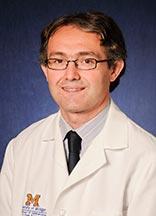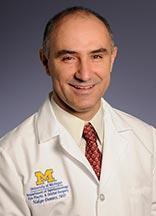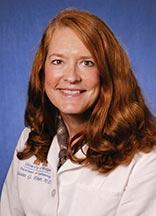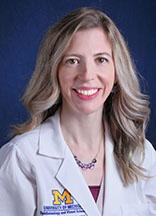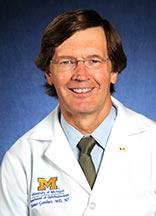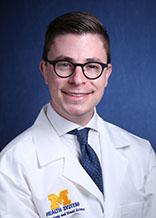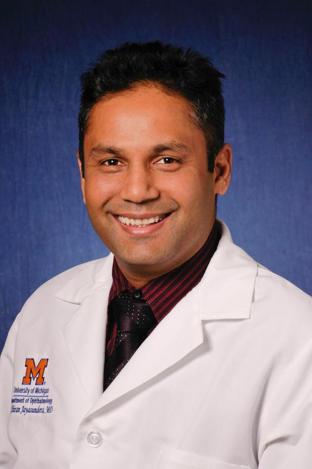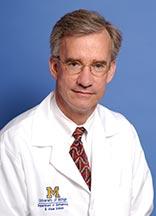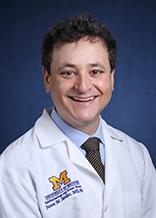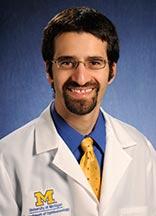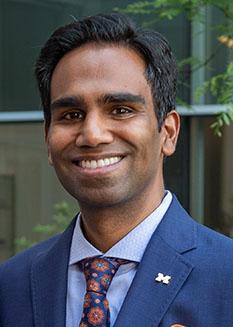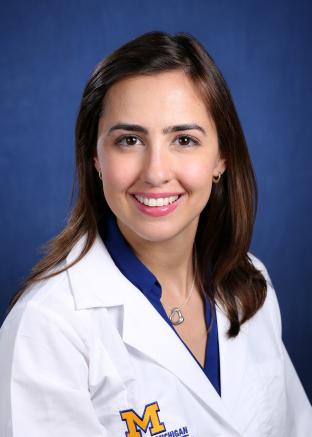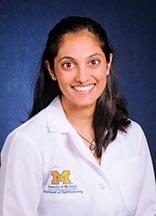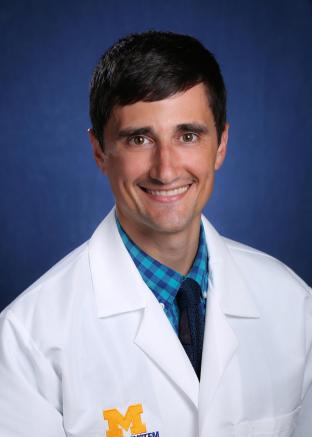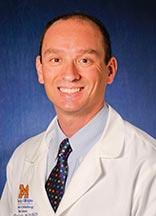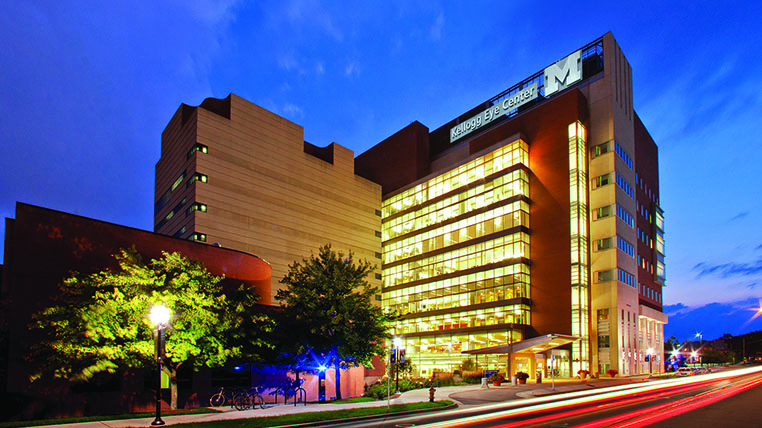Program Description
The Medical Retina Fellowship is a one year clinical training program providing participants with the opportunity to interact daily with world-renowned faculty in retina, uveitis and ocular oncology in state-of-the-art facilities at the Kellogg Eye Center. Fellows are also provided with multiple research opportunities and the flexibility to enhance their learning goals by adapting the year to individual clinical interests and goals.
The Kellogg Eye Center is participating in the Retina Fellowship sponsored by the Association of University Professors of Ophthalmology.
Curriculum
Fellows work directly with recognized experts in general retina, uveitis, inherited retinal degeneration, pediatric retina, ocular oncology, and ocular imaging. The inherited retinal degeneration team includes two genetic counselors and an electrophysiologist, all of whom participate actively in patient care and teaching. The retina service also has a dedicated ophthalmic ultrasound unit, with three certified sonographers serving as full members of the clinical care team. Fellows will gain experience with procedures including: intra and peri-ocular injections, retinal lasers, photodynamic therapy (PDT), and cryotherapy. In addition, medical retina fellows also participate in pre- and post-operative care of surgical retina patients, preparing them for the opportunity to co-manage patients with surgical retina colleagues in the future. Once a week, the fellow has an independent retina clinic at the Ann Arbor Veterans Affairs (VA) hospital. The VA clinic provides an opportunity to longitudinally follow a cohort of patients throughout the year.
Interested fellows will have the opportunity to regularly perform cataract surgery under the supervision of faculty from the comprehensive ophthalmology service, as well as during combined vitreoretinal cases with retina faculty.
Fellows also participate in Fellows Clinic daily from Monday-Friday, in which they have the opportunity to independently see and manage patients presenting with new or urgent pathology, while also having the benefit of direct, in-person support from the faculty. Once initial management is determined for the patients, they can then be transferred to faculty clinics for long-term follow-up.
Clinical Resources
At the Kellogg Eye Center, our fellows enjoy ready access to world-class resources including:
- State-of-the-art retina clinic with dedicated Retina Service staff (with full technician support for Fellows Clinic)
- Award-winning and highly recognized clinical photography department with all of the latest, imaging modalities
- Full range of dystrophy testing, including ERG, multifocal ERG, Goldman visual fields, dark adaptation, color testing, and genetic testing
- Genetic counseling services
- Dedicated ultrasound unit with three full-time sonographers
- Fully equipped laser suite with three-wavelength pattern scanning and indirect laser as well as an in-clinic cryotherapy unit
- Photodynamic therapy laser and support staff
- Fully equipped 6-room operating room suite within the Kellogg Eye Center
For a look inside the Kellogg Eye Center, visit the Why Train at the Kellogg Eye Center page.
Culture
The focus of this training program is to maximize fellow learning. To accomplish this, attending physician clinics are organized such that there is no reliance on the fellows to function. The emphasis is on fellows learning to manage acute or complex patients, and participating in the care of interesting faculty patients. Outside of Fellows Clinic, fellows have the opportunity to see any faculty patient prior to the faculty examination, including those presenting to ocular oncology, dystrophy, and uveitis clinics.
Most importantly, though, the Retina Service at the Kellogg Eye Center, composed of 18 faculty members, 3 surgical retina fellows, and 1 medical retina fellow, has a well-established reputation for collegiality and collaborative relationships. Fellows work closely with each other as well as faculty, in an inclusive, kind, and respectful environment. We value diversity and equity for all of our fellows.
Call
Primary call coverage is provided by the residency program, with an on-call retina fellow available for resident consultation and retina-related procedures/surgeries. Call is divided among the three surgical retinal fellows and the one medical retina fellow (who is always supported on call by a surgical fellow for applicable cases). There is no requirement for trauma call.
Competencies
Upon completion, fellows will have the following competencies:
- Diagnosis and management of routine and complex medical retina pathology (including many types of uveitis, inherited retinal dystrophies, ocular malignancies, and surgical retina issues)
- Multiple types of in-office procedures (such as intraocular injections, retinal lasers, pneumatic displacements, pneumatic retinopexy, PDT, and cryotherapy)
- Interpretation of ultrasonography, electroretinography, and other more commonly performed types of retinal imaging, such as fluorescein angiography, indocyanine green angiography, OCT-angiography, and SD-OCT.
Teaching and Research
Fellows also participate in teaching conferences, such as imaging conference, electroretinography conference, research conference, journal club, and grand rounds. Participation in research is encouraged and supported. Multiple clinical and laboratory research opportunities are available through our numerous retina faculty.
Clinical Training Sites
University of Michigan Kellogg Eye Center
Department of Ophthalmology and Visual Sciences
1000 Wall Street
Ann Arbor, MI 48105
For a look inside the Kellogg Eye Center, visit the Why Train at the Kellogg Eye Center page.
VA Ann Arbor Healthcare System
2215 Fuller Rd
Ann Arbor, MI 48105
Website
How to Apply
The Kellogg Eye Center is participating in the Retina Fellowship sponsored by the Association of University Professors of Ophthalmology (www.sfmatch.org)
We invite you to contact us at [email protected] with any additional questions.
To apply for the University of Michigan's Medical Retina Fellowship, please submit your application to the Ophthalmology Fellowship Match. We are not able to accept applications directly.
Ophthalmology Fellowship Match
P.O. Box 7584
San Francisco, CA 94120-7584
Phone: 415-447-0350
Important Dates
Please refer to posting on SF Match website for information regarding application deadlines and interview date
Program Director
Anjali R. Shah, MD
University of Michigan Kellogg Eye Center
1000 Wall Street, Ann Arbor, MI 48105
Phone: 734-232-8404
Fax: 734-232-8030
Email: [email protected]

